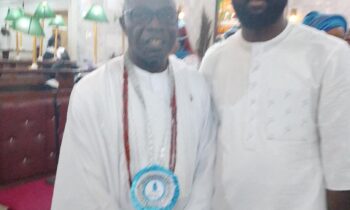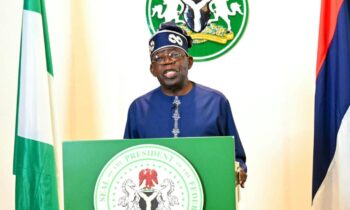…says total SIM registration hits 189 million

The Minister of Communication and Digital Economy, Isa Pantami, said on Thursday that the Federal Government is not planning to lift the ban on Subsribers Indentification Module (SIM) any time soon, because of prevailing security situation in the country.
The minister who stated this while addressing State House correspondents in Abuja, said SIM registration carried out in the past was compromised, stressing that when it comes to security concern, the issue of economy takes back stage.
According to him, President Muhammadu Buhari gives priority to security because it is our number one primary responsibility as a government. “The ban on SIM, it may affect our economy and some ways but when addressing the use of security, the issue of economy is second because you have to protect your citizens before you talk of economy”.
He explained that the decision was taken in order to ensure that the government would be seen to have contributed its own quota in making our country safe and secure for all. We know it’s painful but it’s necessary.
“In September 2019, we did audit exercises and we allowed a process of auditing and the process of new SIM to go concurrently. We discovered that the agents doing the registration, some of them compromised the system badly to the extent that while we were doing audit exercise in 2019, they allowed people to come, one person will be invited, he would give a little amount of money, they will use his biometric and register a hundred cards online and get a passport to attach to it and they will complete the bio-data and the SIM will be activated.
He said a SIM was completely registered when a crime is committed and you receive the information on the bio-data you won’t be able to trace anybody in the country. Why because of improper registration. So, in order to address the challenge of using the bio-metric of another citizens to register and sell it as a registered card, we say your biometric or your SIM must match with that of your national identity, so if you have SIM it will be attached to your biometric in the national identity. Why? It’s because of security. As a minister, this is one of the most difficult decision we have taken. But it becomes necessary if, and only if, we want to protect our citizens.
“And this us our priority. That is why when you close one chapter, another challenge will be open. But you have to address that challenge. That is why we came up with that that since people were being given money, their biometrics were being used for 100 SIMs, we can’t accept that. The biometric in your SIM must match with your national identity number so government will know that you are the owner of the SIM.
“But as you know, criminals whether bandits, terrorists or anywhere they are, they always exploit this SIM and we don’t want to allow our platform for perpetration if criminality in our country.
“Furthermore, it is a challenge that this administration inherited. Any responsible nation, before you give a license to any operator of telecommunication company, they is supposed to be a model, framework in place from the initial stage, but in Nigeria, it is situation where we build a house without any wall.
“Now it is only after building the house, we found out that the foundation was faulty bu we are trying to fix the foundation without demolishing the house. All we are doing were supposed to be done before issuing Licences in Nigeria. The template must be in place so that it will not be compromised. But this was not don. When telecoms came into Nigeria people used to buy SIMs the way they liked. It is only later that government discovered that SIMs were being used in committing crimes,” he said.
The minister said the cost of data provided by telecommunications companies has been halved since last year from about N1,200 per gigabyte to less than N500 now.
He, however, blamed some state governments for the high cost of data production by inflating the charges telecommunication firms pay for right of way in installing their cables.
“Some states charge as high as N60,000 per linear meter whereas it should not ordinarily be more than N145,” he said.
The minister said he had engaged the governors through the Nigeria Governors’ Forum (NGF), and pleaded with Vice President Yemi Osinbajo to intervene in the matter.
He said if the anomaly is corrected fully, the GSM and telecom firms companies would produce even cheaper data.
Speaking on the performance of the ministry in 2020, the minister said but for the ICT sector, Nigeria would not have been able to exit recession occasioned by COVID-19 pandemic.
He said within the period under review, the ICT sector grew more than 14.79% of the economy maintaining that the growth in the ICT was key to the successes recorded in the growth of the country’s economy.





